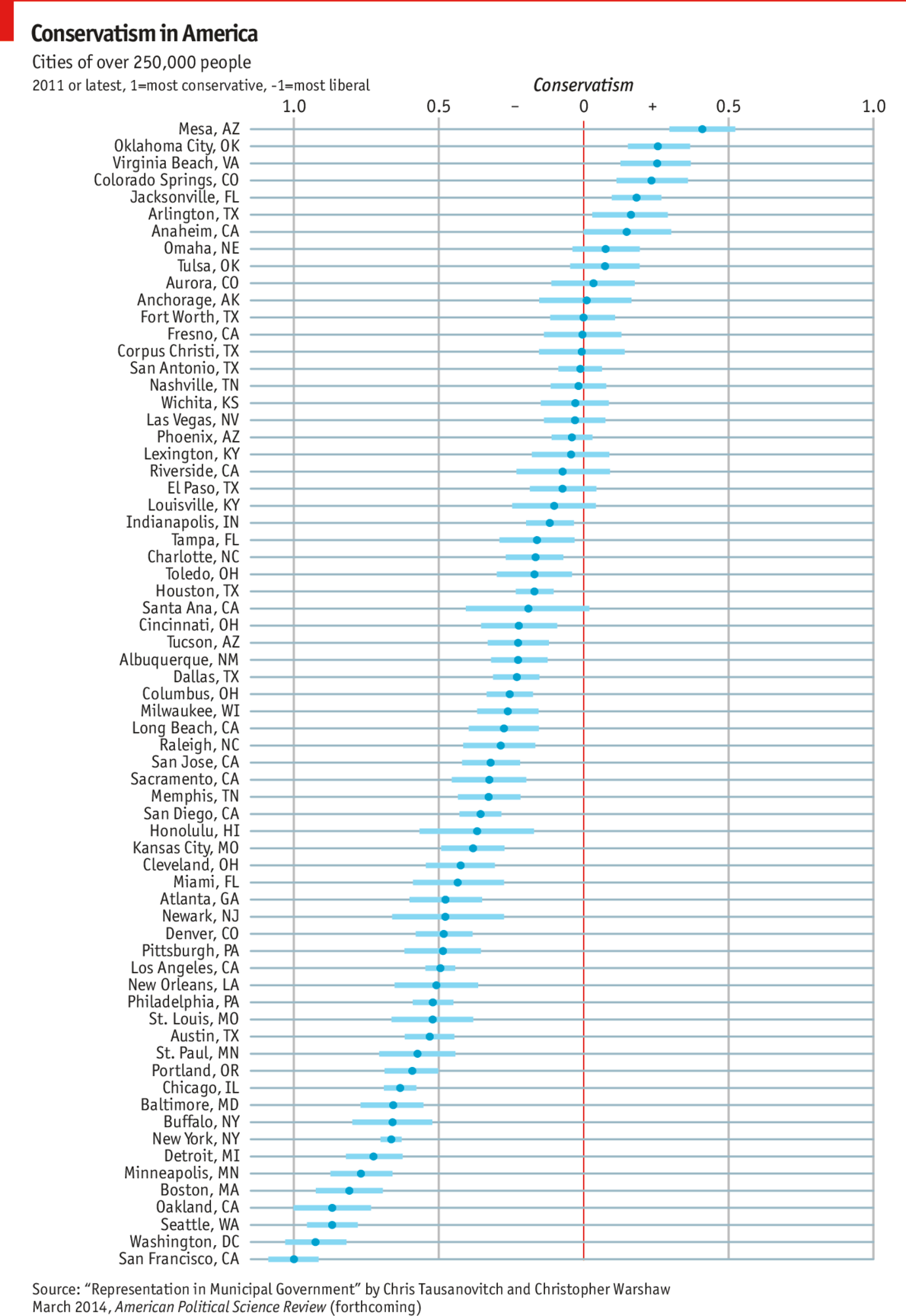Just how conservative is Long Beach?
According to research to be published in the American Political Science Review this month from an MIT/UCLA collaboration, Long Beach is—shocker!—fairly liberal. In fact, the research substantiates what is largely considered a conventional belief: larger cities are more liberal.
Long Beach, however, is not nearly as liberal as San Francisco, Washington DC, or Seattle, the nation’s leading bastions of leftist ideology. The Economist graped the reasearchers’ data in a way that lays out the nation’s most populous cities and used the researchers’ data to rank them in terms of conservativism, with Mesa, AZ, Oklahoma City, and Virginia Beach leading the big cities in terms of right-wing ideology.
Long Beach is the 36th most conservative (or 32nd most liberal) city of the 67 cities on the list, scoring somewhere near a -0.25, between 0 and -0.5, where -1 represents “most liberal” and +1 is “most conservative.”

What’s more intriguing is that the research, led by Chris Warshaw of MIT and Chris Tausanovitch of UCLA, shows that local policies reflect their citizens’ political leanings more than the overall platforms of the political party affiliated with their elected officials. This explains, at least anecedotally, why former New York Mayor Michael Bloomberg touted himself as a fiscal conservative and yet raised taxes (not to mention told New Yorkers they shouldn’t have large sodas). Local leaders follow local politics.
“Despite the supposition in the literature that municipal politics are non-ideological, we find that the policies enacted by cities across a range of policy areas correspond with the liberal-conservative positions of their citizens on national policy issues,” the authors stated in their research. “In addition, we consider the influence of institutions, such as the presence of an elected mayor, the popular initiative, partisan elections, term limits, and at-large elections. Our results show that these institutions have little consistent impact on policy responsiveness in municipal government. These results demonstrate a robust role for citizen policy preferences in determining municipal policy outcomes, but cast doubt on the hypothesis that simple institutional reforms enhance responsiveness in municipal governments.”
Warshaw and Tausanovitch used the data from large-scale public opinion surveys from across 1,600 cities and towns across the nation to fulfill their research.

